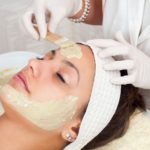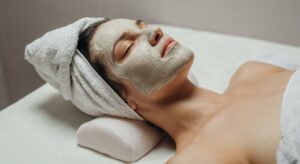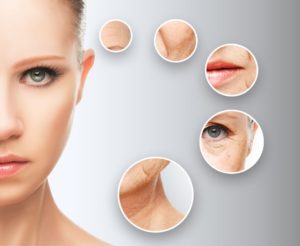Skin exfoliation is necessary as it can help smooth out your skin tone while brightening your complexion. But the tricky part is choosing the ideal exfoliator for your skin type. Another difficult task is deciding how often you should exfoliate your skin when to do it, and how potent your exfoliator should be.
You can choose from two types of exfoliators: physical and chemical. The first involves using some tool or scrub to eliminate dead skin cells from the surface. The chemical exfoliators gently dissolve the dead skin cells. They are further divided into three categories, Alpha hydroxy acids, Beta hydroxy acids, and the less common type, Poly-hydroxy acids. Learning the difference between them is crucial to maintain your skin’s health.
What are Alpha Hydroxy Acids?
Alpha-hydroxy acids are water-soluble. They are derived from fruits and work gently by peeling the topmost layer of skin. It exposes the new skin cells and makes your skin appear even, healthy, smooth, and firm.
The alpha hydroxy acids usually do not penetrate deeply into the skin. They typically address the skin concerns like age spots, sun spots, uneven skin tone, enlarged pores, fine lines, and wrinkles.
Though alpha hydroxy acids are safe for all skin types, they are slightly drying and irritating for sensitive skin. People with dry or sensitive skin should use low concentrations of alpha hydroxy acids. Limit the use to once or twice a week. Then, if you do not observe any irritation or redness, you can gradually incorporate it into your daily skincare routine.
The most common alpha hydroxy acids are glycolic acid, citric acid, malic acid, mandelic acid, lactic acid, and tartaric acid.
What are Beta Hydroxy Acids?
Beta hydroxy acids are oil soluble. Therefore, they penetrate deeper layers of skin and are highly effective in treating oily skin issues. They eliminate dead skin cells and excess sebum, unclog pores, and reduce inflammation and acne symptoms.
Beta hydroxy acids work in deeper skin layers and control sebaceous glands’ activity. However, they are not ideal for sensitive skin as they dry up the excess oil and make your skin more sensitive and irritated. On the other hand, people with oily or rosacea-prone skin can benefit from beta-hydroxy acids.
Salicylic acid and citric acid are the two main types of beta-hydroxy acids. Salicylic acid is a common type typically used in topical treatments for acne, while citric acid controls too much sebum and removes the dead skin cells clogged in pores.
The Bottom Line
Alpha hydroxy acids (AHAs) and beta hydroxy acids (BHAs) in the right concentration offer a variety of skincare benefits. However, misuse of them can cause over-drying and skin irritation. Beware of choosing the suitable acid; start by using it once or twice a week and go for low potency if you are new to a chemical exfoliator. Once you adjust your exfoliating skincare routine, you will get to resolve many of your skin problems.
*Information in this article is not medical advice and may not be factually accurate. It is intended for entertainment purposes only. Consult with a physician before attempting any tips in this blog post and to get the most up to date factual data about any procedure or treatment.














